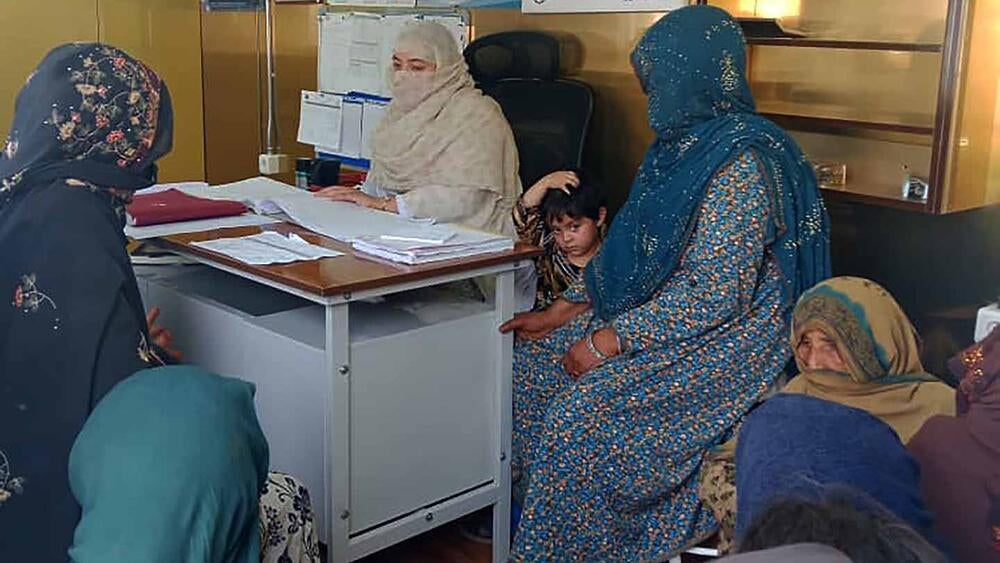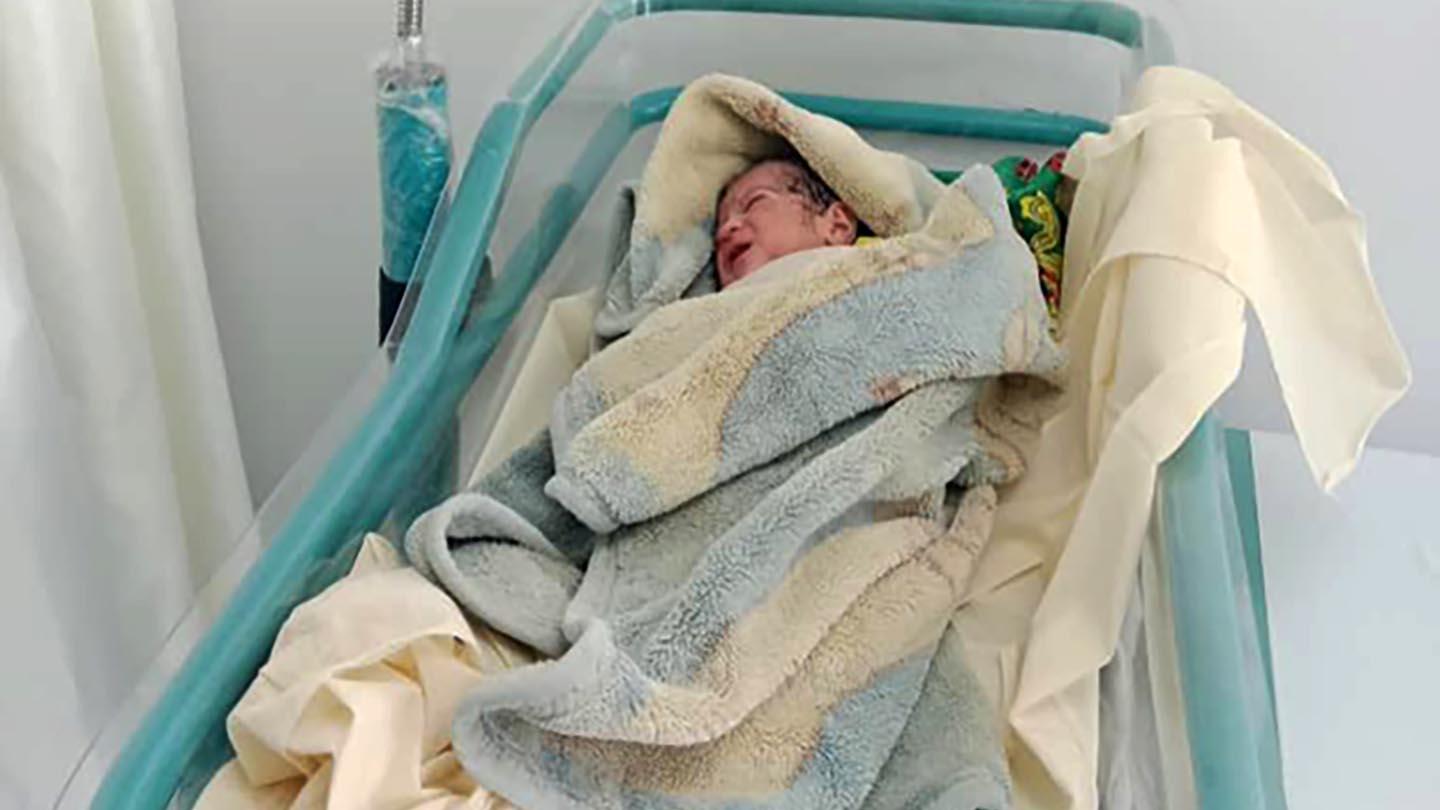Nangarhar, Afghanistan—Salma is from the Mohmand Dara District of Nangarhar but has lived in Pakistan with her family for 15 years. Last week, she found herself back in the soil of her roots as she was among those deported back into Afghanistan in the repatriation drive by Pakistani authorities targeting Afghans.
The deportation did not come as a surprise for Salma as her family members, including her husband, had been the subjects of arrests and detentions by Pakistani authorities since last year. She did not anticipate, though, that she would give birth to a new life as soon as she was back in Afghanistan.
Salma was 38 weeks pregnant – close to a full-term pregnancy – when she travelled from Pakistan to the border with Afghanistan following her deportation.
“It was an arduous journey for me as I was 38 weeks pregnant,” Salma recounted. In no time, she reached the zero point in the Torkham area at the border between Pakistan and Afghanistan.
Salma began experiencing labour pains while in a tent camp for the returnees at the zero point. “I was confused, scared, and did not know what to do,” she said. “Fortunately, health workers came to provide medical assistance. They brought me to the UNFPA-supported Basic Health Center (BHC) at the Torkham zero point.”
Upon arrival at the clinic, Salma’s abdominal contractions and labour pains were progressing. Midwife Siddiqa also noted that she was in distress. “Aside from the uncertainty of her condition, she was also anxious about family members whom she left behind in Pakistan,” midwife Siddiqa said.
The midwife helped Salma relax and focus on her breathing so she could deliver the baby without complications. Indeed, it did not take too long as Salma gave birth to a healthy baby girl within an hour.
Since the beginning of April this year, 17 women have safely delivered in the UNFPA-supported BHC (12 deliveries) at the zero point and the Emergency Maternity Clinic (five deliveries) at the reception centre for the returning Afghans. This underscores the importance of the birthing facilities and skilled health workers, such as doctors and midwives, to provide emergency maternity care to returning Afghan women.

UNFPA and its implementing partner, the Agency for Assistance and Development of Afghanistan, with the support of the Government of the United Kingdom, are on the ground, ready to provide maternal and newborn care and psychosocial support services at the borders to support the most vulnerable populations, particularly women, girls, and young people.
As part of Salma’s postnatal care, midwife Siddiqa referred her to the clinic’s psychosocial counsellor to support her in dealing with the stress of her deportation and the family situation.
Salma expressed gratitude to the health workers for the services she and her newborn received. “I am grateful to see such a nice clinic and dedicated doctors who care for the returning refugees. Their caring attention and advice gave me hope for a new beginning,” she said.
While the situation does not look ideal right now, Salma takes a moment to reflect on the new life she just gave birth to.
“We do not have a place to stay yet, and I am worried about where we will end up. Despite this unfortunate situation, I am hopeful for my newborn's future and pray for a better life for my family back in my country,” Salma sighed.
According to the IOM displacement tracking report, more than 130,000 individuals have entered Afghanistan through the border crossing points with Pakistan and Iran during the period 23 March to 5 April this year. Of this number, more than 64,000 were from Pakistan. Some of the returning women are pregnant and need maternal care, like Salma.
UNFPA is on the ground, providing essential reproductive, maternal, newborn, child and adolescent health services at the zero point to support Afghans, especially women and girls, in need of health and psychosocial support services as they return from neighbouring countries.


